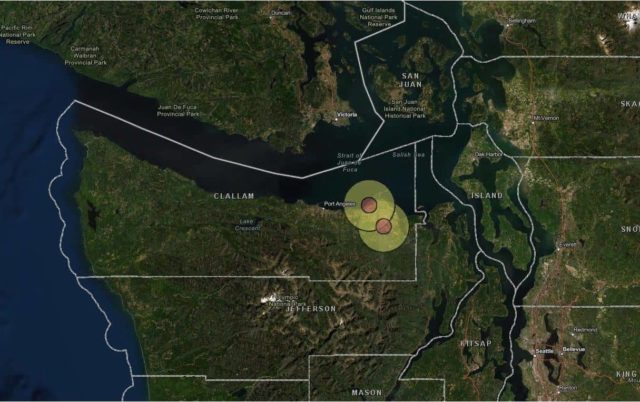
OLYMPIA (WSDA and KONP staff) – Since its arrival in Washington state two weeks ago, avian influenza has hit nine flocks in seven counties, including Clallam County, all in backyard flocks. Tests confirmed the latest case in Thurston County Tuesday, May 17.
The Washington State Department of Agriculture (WSDA) tested the flock after the owner contacted WSDA’s Sick Bird Hotline reporting several dead and sick birds in the flock, which contains an unknown number of chickens, geese, guinea fowl and ducks. After the flock samples tested positive, the state veterinarian quarantined the flock. The flock will be euthanized to contain the spread of the virus.
The same process played out last week when the WSDA announced that two flocks in the Sequim area had tested positive for bird flu.
As with every flock that has tested positive so far, the Thurston County flock had substantial exposure to wild waterfowl. Dr. Amber Itle, Washington state veterinarian, is urging bird owners to take steps to stop the virus from spreading, including skipping fairs and exhibitions until at least 30 days after the last detection.
“If we can remain vigilant for a few more weeks, I’m hopeful we can resume normal activities at the end of June,” Itle said.
Itle added the biggest concern is keeping flocks away from wild waterfowl, especially right now.
“It’s going to be especially important to keep flocks away from ponds where resident wild geese may be hatching out goslings,” Itle said. “These ponds are highly likely to have heavy environmental contamination.”
Public health officials say human infection is very unlikely, especially with this year’s strain of HPAI.
Additionally, infected birds do not enter the commercial food system. Meat and eggs from both wild game birds and domestic poultry need to be properly cooked to ensure they are safe to consume.
WSDA will continue to announce the first detection of avian influenza in new counties. WSDA’s website tracks new and subsequent detections in each county. It also includes an interactive map, showing surveillance areas around confirmed detections. Flock owners are encouraged to visit the map where they can enter their address and learn if they are in a surveillance zone. Those in a surveillance zone should take extra care to protect and monitor their flocks.
Officials urge flock owners to report unusual, multiple deaths or illness among domestic birds to the WSDA Avian Health Program at 1-800-606-3056. Report dead or sick wild birds using the Washington State Department of Fish and Wildlife’s online reporting tool.
(Graphic shows general locations of bird flu in Clallam County)
